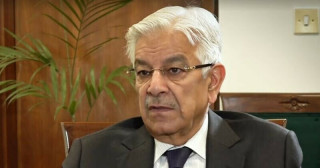Star Gazer
Chief Minister (5k+ posts)
feudalism (fy??d'l-?z'?m)
A political and economic system of Europe from the 9th to about the 15th century, based on the holding of all land in fief or fee and the resulting relation of lord to vassal and characterized by homage, legal and military service of tenants, and forfeiture.
A political, economic, or social order resembling this medieval system.
Under the feudal system, every person had obligations to a superior.
The King promised God that he would look after the country.
The barons or tenants-in-chief promised to support the King.
The under-tenants promised to serve the tenants-in-chief.
The peasants (including both free men and villeins) had to perform services for their landlords and pay them rents.
Every person had a duty to someone else.
Lords, vassals and fiefs
Three primary elements characterized feudalism: lords, vassals and fiefs; the structure of feudalism can be seen in how these three elements fit together. A lord was a noble who owned land, a vassal was a person who was granted possession of the land by the lord, and the land was known as a fief. In exchange for the fief, the vassal would provide military service to the lord. The obligations and relations between lord, vassal and fief form the basis of feudalism.
Before a lord could grant land (a fief) to someone, he had to make that person a vassal. This was done at a formal and symbolic ceremony called a commendation ceremony composed of the two-part act of homage and oath of fealty. During homage, the lord and vassal entered a contract in which the vassal promised to fight for the lord at his command.
Fealty comes from the Latin fidelitas and denotes the fidelity owed by a vassal to his feudal lord. "Fealty" also refers to an oath that more explicitly reinforces the commitments of the vassal made during homage. Such an oath follows homage. Once the commendation was complete, the lord and vassal were now in a feudal relationship with agreed-upon mutual obligations to one another.
The vassal's principal obligation to the lord was to provide "aid," or military service. Using whatever equipment the vassal could obtain by virtue of the revenues from the fief.
A political and economic system of Europe from the 9th to about the 15th century, based on the holding of all land in fief or fee and the resulting relation of lord to vassal and characterized by homage, legal and military service of tenants, and forfeiture.
A political, economic, or social order resembling this medieval system.
Under the feudal system, every person had obligations to a superior.
The King promised God that he would look after the country.
The barons or tenants-in-chief promised to support the King.
The under-tenants promised to serve the tenants-in-chief.
The peasants (including both free men and villeins) had to perform services for their landlords and pay them rents.
Every person had a duty to someone else.
Lords, vassals and fiefs
Three primary elements characterized feudalism: lords, vassals and fiefs; the structure of feudalism can be seen in how these three elements fit together. A lord was a noble who owned land, a vassal was a person who was granted possession of the land by the lord, and the land was known as a fief. In exchange for the fief, the vassal would provide military service to the lord. The obligations and relations between lord, vassal and fief form the basis of feudalism.
Before a lord could grant land (a fief) to someone, he had to make that person a vassal. This was done at a formal and symbolic ceremony called a commendation ceremony composed of the two-part act of homage and oath of fealty. During homage, the lord and vassal entered a contract in which the vassal promised to fight for the lord at his command.
Fealty comes from the Latin fidelitas and denotes the fidelity owed by a vassal to his feudal lord. "Fealty" also refers to an oath that more explicitly reinforces the commitments of the vassal made during homage. Such an oath follows homage. Once the commendation was complete, the lord and vassal were now in a feudal relationship with agreed-upon mutual obligations to one another.
The vassal's principal obligation to the lord was to provide "aid," or military service. Using whatever equipment the vassal could obtain by virtue of the revenues from the fief.








































